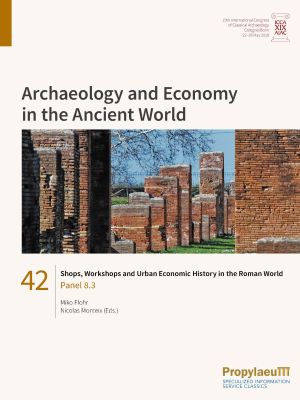
How to Cite
License

This work is licensed under a Creative Commons Attribution-ShareAlike 4.0 International License.
Identifiers
Published
Shops, Workshops and Urban Economic History in the Roman World
Panel 8.3
The material remains of Roman urban shops and workshops long played a marginal role in classical archaeology, but in recent years, they have enjoyed a marked increase of scholarly attention. Influenced by debates about the nature of ancient urban economies, scholars began to study the archaeological evidence for urban retail and manufacturing with an unprecedented vigour from the late 1990s onwards.
Since the turn of the millennium, scholars have increasingly begun to study shop- and workshop design in relation to profit-oriented investment strategies, and to explore the economic history of urban commercial landscapes. This volume discusses the ways in which the study of urban shops and workshops has challenged our conceptualization of urban economic history in the Roman world, and it explores possible avenues to further deepen our understanding of the changing nature of Roman urban commerce, and to bridge spatial and chronological distances between local sets of evidence.






